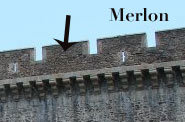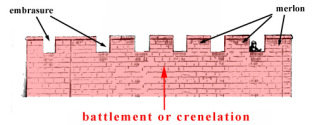σε κάθε έπαλξη (π.χ. Θα πολεμήσουμε σε κάθε έπαλξη) = on every rampart, on every battlement
Αλλά υπάρχει και ο γνωστός λόγος του Τσόρτσιλ:
We shall fight on the beaches, we shall fight on the landing grounds, we shall fight in the fields and in the streets, we shall fight in the hills; we shall never surrender.
http://en.wikipedia.org/wiki/We_shall_fight_on_the_beaches
Αλλά υπάρχει και ο γνωστός λόγος του Τσόρτσιλ:
We shall fight on the beaches, we shall fight on the landing grounds, we shall fight in the fields and in the streets, we shall fight in the hills; we shall never surrender.
http://en.wikipedia.org/wiki/We_shall_fight_on_the_beaches


